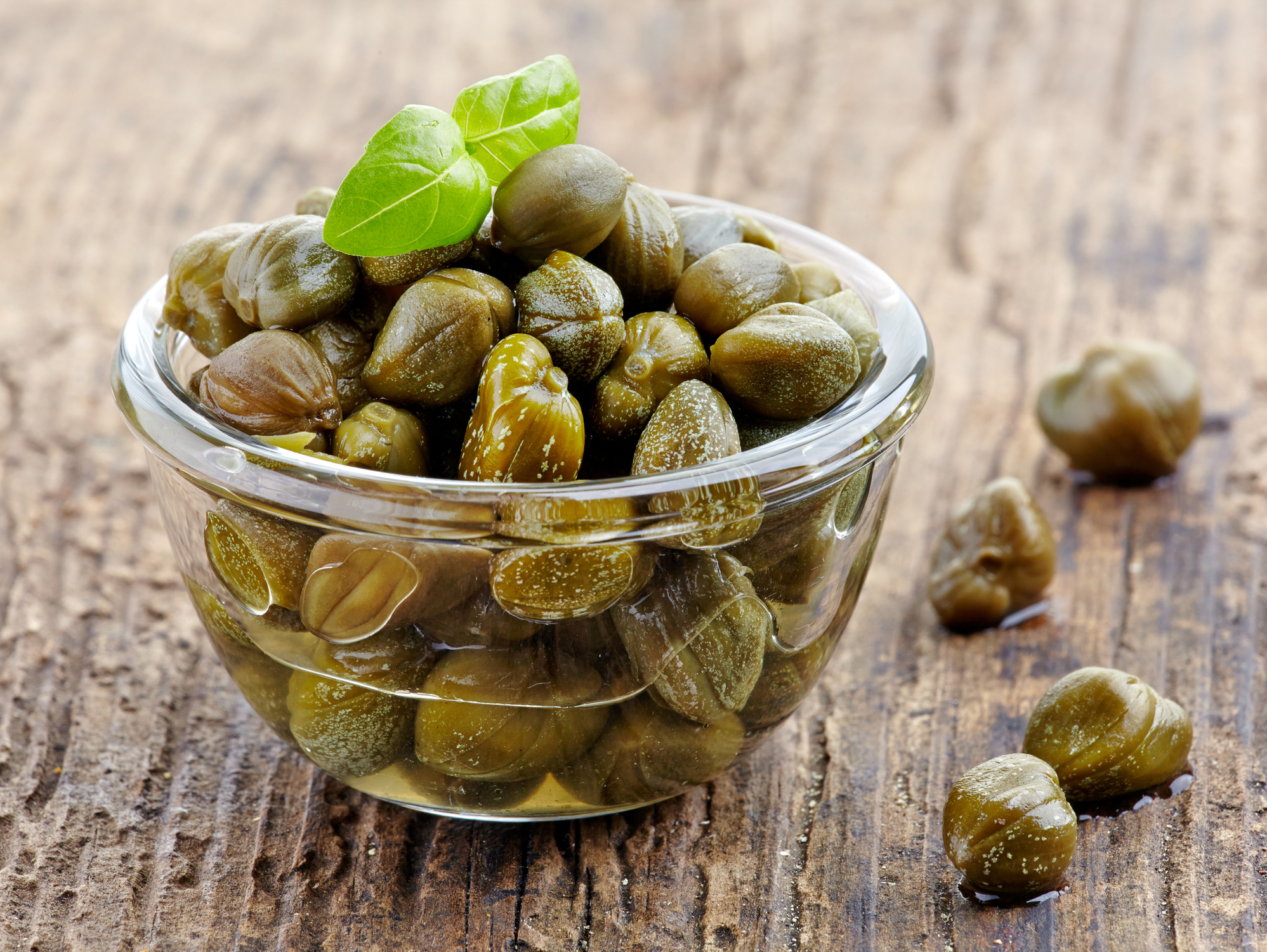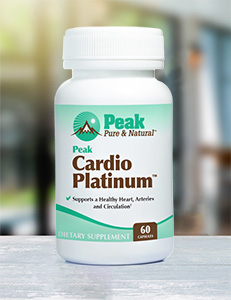Get Easy Health Digest™ in your inbox and don’t miss a thing when you subscribe today. Plus, get the free bonus report, Mother Nature’s Tips, Tricks and Remedies for Cholesterol, Blood Pressure & Blood Sugar as my way of saying welcome to the community!
2 excellent reasons to go crazy for capers

How often do you eat capers? You know, those tiny green balls you see hanging out in your chicken piccata, on top of your salmon lox bagel or in your niçoise salad?
The answer for many of us is not that often. If that’s the case, you may want to start indulging in these little green morsels more. New research shows they’re packed with a potent compound that keeps your heart and brain healthy.
But before we dive into the health benefits of capers, you may be wondering… what are these little green things that pop up in my food from time to time anyway?
Well, capers are unripe flower buds from a caper bush, a plant that grows in Italy, Morocco, Spain, Asia and Australia. And humans have been eating these little buds for quite a long time.
Something like 10,000 years, according to archeological research. At some point during that time, capers became popular in folk medicine. They’re believed to have anti-cancer, anti-diabetic and anti-inflammatory properties. They’re also suspected to promote circulatory and gastrointestinal health.
And new research shows they support heart and brain health, all because of a powerful flavonoid they contain — quercetin.
The quercetin in caper extract could prevent cardiac arrhythmia and epilepsy
A recent study from researchers at the University of California, Irvine shows that the quercetin in pickled capers helps keep the brain and heart healthy and potentially reduces the risk of cardiac arrhythmia and epilepsy.
In the study, researchers screened a variety of plant extracts to see if they could alter the activity of KCNQ channels. KCNQ channels are critical to human health. If they’re not functioning correctly, it can contribute to diseases like diabetes, cardiac arrhythmia and epilepsy.
They found that caper extract had a positive impact on these channels because of the quercetin it contains. This quercetin impacts KCNQ channels by regulating how they sense electrical activity in cells.
Further studies showed that the quercetin from the caper extract binds to a part of the KCNQ channel required for responding to electrical activity. This tricks the channel into opening when it would be closed.

Peak Cardio Platinum™
Specially formulated with scientifically-tested ingredients that support arteries, circulation and cardiovascular health.
“Increasing the activity of KCNQ channels in different parts of the body is potentially highly beneficial,” said study researchers Geoffrey Abbott. “Synthetic drugs that do this have been used to treat epilepsy and show promise in preventing abnormal heart rhythms.”
How to get quercetin from capers and other foods
Now, capers aren’t the only dietary source of quercetin. But they are the richest source. So, you may want to pick up a jar of pickled capers on your next grocery store run. Capers are easy to add to salads, pasta dishes, side dishes… you name it.
If you can’t bring yourself to go crazy for capers, don’t worry. You can get quercetin from supplements, as well as a variety of other foods like:
- Grapes
- Berries
- Cherries
- Apples
- Citrus fruits
- Onions
- Buckwheat
- Broccoli
- Kale
- Tomatoes
- Red wine
- Black tea
- Yellow and green peppers
- Shallots
- Asparagus
- Red leaf lettuce
Editor’s note: There are perfectly safe and natural ways to decrease your risk of blood clots including the 25-cent vitamin, the nutrient that acts as a natural blood thinner and the powerful herb that helps clear plaque. To discover these and other secrets of long-lived hearts, click here for Hushed Up Natural Heart Cures and Common Misconceptions of Popular Heart Treatments!
Sources:
- Pickled capers activate proteins important for human brain and heart health — MedicalXpress.
- The ubiquitous flavonoid quercetin is an atypical KCNQ potassium channel activator — Communications Biology.
- What Are Capers, Anyways? — Bon Appetit.
- What are the benefits of quercetin? — Medical News Today.
- What Are Capers? — The Spruce Eats.
- What Is Quercetin? Benefits, Foods, Dosage, and Side Effects — Healthline.













